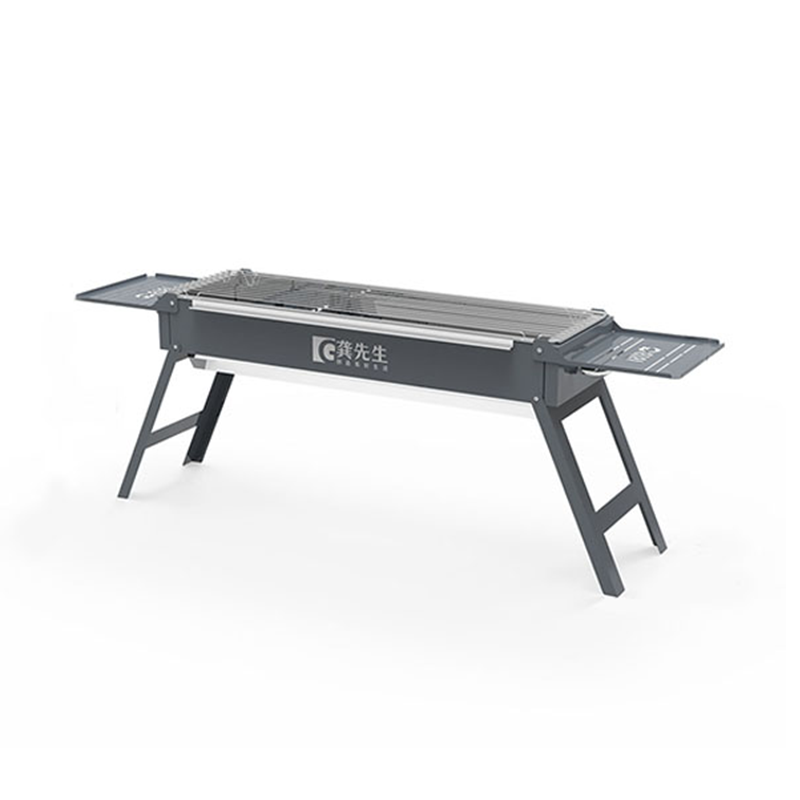Camping is all about enjoying nature, spending time with friends or family, and of course—eating great food under the stars. One common question that arises when planning a camping trip is whether bringing a barbecue grill is a good idea. The answer? Yes—barbecue grills can be excellent for camping, as long as you choose the right type and prepare properly. Let’s explore why.
1. Why Use a Barbecue Grill While Camping?
Barbecue grills offer several advantages when camping. First and foremost, they provide a reliable cooking method that allows you to prepare a wide range of meals—from grilled meats and vegetables to breakfast items like eggs and bacon.
Unlike cooking over a campfire, which can be unpredictable and requires more attention, grills offer more consistent heat control. This makes cooking faster, easier, and safer, especially for those who aren’t experienced with open-fire cooking.
Also, grills tend to be more sanitary. Food doesn’t come into direct contact with ashes, soil, or unclean surfaces, and it’s easier to cook meat to a safe internal temperature.
2. Types of Grills for Camping
Not all barbecue grills are suited for camping, but several types work particularly well:
-
Portable Charcoal Grills
These are lightweight and easy to pack. They offer a traditional smoky flavor that many people love when grilling outdoors. However, they require you to bring charcoal and possibly lighter fluid. -
Portable Gas Grills (Propane)
These grills are very popular among campers because they heat up quickly, are easy to clean, and offer better heat control. Small propane tanks are widely available and easy to transport. -
Electric Grills
These are ideal for camping in places that have power access, such as RV parks or campsites with electrical outlets. They’re clean and efficient, but not suitable for remote or primitive camping. -
Multi-Fuel Grills
Some modern camping grills can use both charcoal and propane, offering the best of both worlds. These are usually more expensive but highly versatile.
3. Benefits of Taking a Grill Camping
Here are a few reasons why bringing a grill can significantly improve your camping experience:
-
Versatile Cooking Options
You can grill, smoke, sear, or even boil water depending on the grill type. This flexibility allows you to prepare a full menu. -
Speed and Convenience
Grills heat up faster than campfires and don’t require you to gather firewood or wait for coals to burn down. -
Safety and Control
A grill offers a controlled cooking environment. There's less risk of flare-ups, burns, or forest fire hazards (especially with propane grills). -
Cleaner Camp Cooking
Grills are easier to clean than fire pits and don’t leave messy ashes behind. Many portable models are designed to be cleaned and stored without hassle.
4. Considerations Before You Pack the Grill
Before tossing a grill in your trunk, consider these important tips:
-
Size and Portability
Make sure the grill is compact and lightweight enough to carry. Look for foldable legs, locking lids, and easy-carry handles. -
Fuel Source Availability
If you're using propane, bring extra canisters. If you're using charcoal, make sure you're allowed to light fires where you're going. -
Campground Rules
Some parks have restrictions on open flames or charcoal use, especially during dry seasons. Always check local fire regulations before you go. -
Weather Conditions
Wind and rain can affect your ability to use certain types of grills. Propane grills typically perform better in less-than-ideal weather.
5. Best Foods to Grill While Camping
Part of the fun of camping is enjoying simple, delicious meals. Here are some easy options to prepare on a grill:
-
Burgers and hot dogs
-
Chicken skewers
-
Grilled veggies (peppers, corn, mushrooms)
-
Foil packets with potatoes, fish, or mixed vegetables
-
S’mores (use indirect heat!)
-
Breakfast items like bacon, sausages, and toast
You can pre-marinate meats or pre-chop vegetables at home to save time at the campsite.
6. Are There Any Downsides?
While grills are great for camping, there are a few potential drawbacks:
-
Extra weight – A grill and fuel can add to your packing load, which might be an issue for backpacking trips.
-
Fuel limitations – Running out of propane or charcoal can leave you without a cooking method.
-
Cleanup – While easier than cleaning a fire pit, grills still need to be scrubbed down and packed out cleanly.
That said, for car camping or RV camping, these are generally minor concerns.
So, are barbecue grills good for camping? Absolutely. They provide convenience, versatility, and a safer way to cook great food outdoors. By choosing the right grill and preparing in advance, you can enhance your camping meals and spend less time struggling with firewood or cleanup.
Whether you're grilling burgers under the stars or making a sunrise breakfast in the mountains, a barbecue grill can turn your camping trip into a memorable culinary adventure.



 English
English Español
Español



